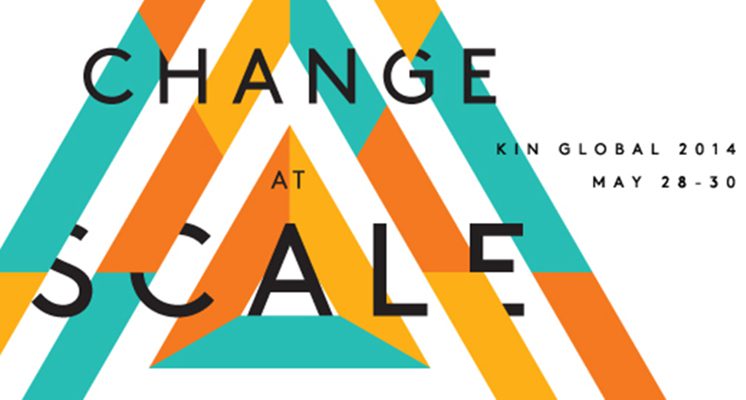The following article was originally sourced from the news piece “The Multiplier Effect,” published on Kellogg’s News & Events page.
Three student teams participating in the KIN 2014 Challenge at the Kellogg School of Management, a new program launched by the Kellogg Innovative Network (KIN), were challenged to take big ideas and figure out how to scale them. The teams then presented their own ideas on May 30 at KIN Global 2014, an annual, three-day conference that focused on topics related to global prosperity Teams joined forces with a handful of business and government leaders and were tasked to find solutions to unique problems that each leader faced within their organizations.The teams paired up with the following leaders:
Esther Dyson, a renowned technology investor and philanthropist, founder and chairman of the Connecticut-based nonprofit HICCup. Dyson wasw interested in securing sustainable funding for her Way to Wellville health care initiative.
Ann Hand, CEO of Project Frog, who wanted to explore strategies for scaling her San Francisco-based, green-building business.
John Hickenlooper, governor of the State of Colorado and successful entrepreneur. Hickenlooper sought an innovative, public-private partnership model for large capital-works projects.
“Team Hand” resented that they tackled their challenge by identifying opportunities for improvement within Project Frog. They found that labor inefficiencies, overhead costs and material thefts were costing Project Frog approximately $26 million a year and asked how can we use technology to streamline these processes.
As a solution to these inefficiencies, the students proposed that through use of three technologies—radio-frequency identification (RFID), augmented reality and cloud computing—Project Frog could standardize and streamline the way its buildings are constructed.
The KIN 2014 Challenge was in keeping with the conference’s theme, Change@Scale, which focused on strategies to grow new ventures and initiatives. The conference drew distinguished delegates from a range of industries and institutions representing more than 20 countries.
Dean Sally Blount also addressed conference-goers (or “KINians” as they’re called), extolling the importance of growth as a change agent.
“What I love about the topic of growth and scaling is it’s so fundamental to making the world a better place,” she said. “We all need to be thinking about growth in people, growth in organizations and growth in markets.”
